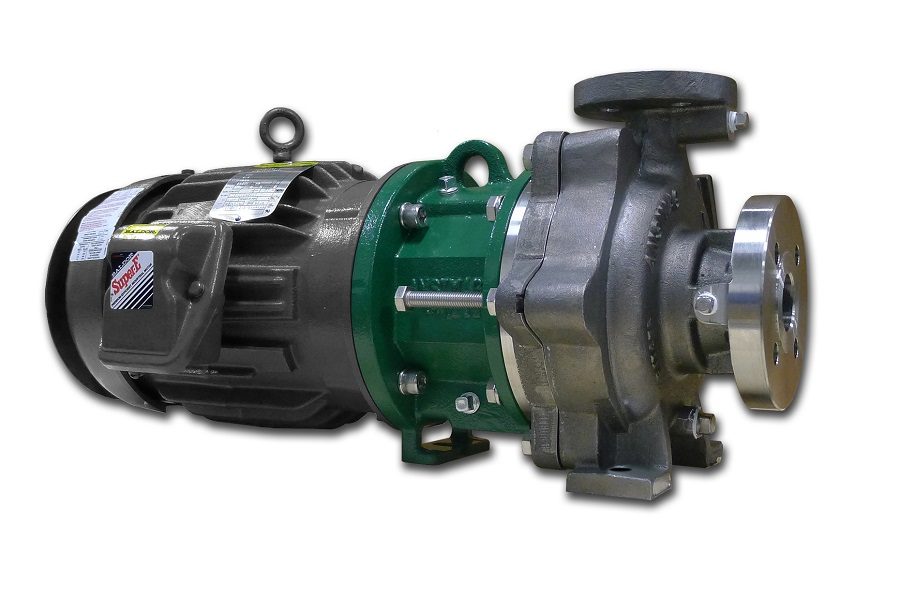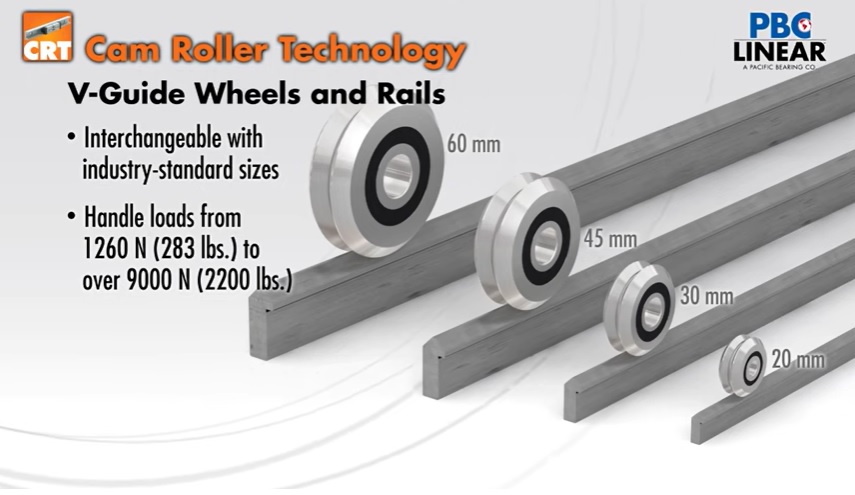Highlights of Turbomachinery & Pump Symposia 2022
A strong post-pandemic turnout brings the turbo and pump industry up to speed
TPS is an industry event that offers an integral forum for the exchange of ideas between rotating equipment engineers and technicians worldwide. TPS is known for its spirited engagement with turbomachinery, pump, oil and gas, petrochemical, power, aerospace, chemical, and water industries through its peer-reviewed technical program and world-class exhibition.
Overall, the conference saw 3,815 attendees, hosted 94 technical sessions, and had 274 exhibiting companies. Many attendees commented on the value of networking conversation at the show. From 2021 to 2022, TPS saw an increase in international delegates, with just 19 countries represented in 2021, to 44 countries represented in 2022. Below is a taste of the booths we had the chance to visit.

Dr. Eric Petersen, pictured here delivering the TPS welcome address, is the Director of the Turbomachinery Laboratory at Texas A&M which hosts the annual event in Houston.
Sundyne
At the recent Turbomachinery and Pump Symposia in Houston, Sundyne showcased a wide range of Pumps & Centrifugal Compressors that are used in gas processing applications such as: amine treating, molecular sieve dehydration, cryogenic processing & distillation, and fractionation applications, which remove carbon atoms and separate heavier hydrocarbons (such as Ethane, Propane and Butane) from gas streams.
Sundyne’s LMV 311 pumps were on display at TPS, because they are widely used within the hydrocarbon, petrochemical and power generation markets. Sundyne’s LMV (Line Mounted Vertical) pumps are specifically engineered for high-head, low-flow, heavy-duty services. They’re commonly deployed as booster pumps, bottoms pumps, reflux pumps and condensate pumps in reformer, hydrotreater, hydrocracker and isomerization process units.

Sundyne’s LMV (Line Mounted Vertical) 311 pumps are engineered for high-head, low-flow, heavy-duty services.
Sundyne’s centrifugal integrally geared compressors, such as the LMC/BMC/LF-2000 series are widely used in refineries and petrochemical plants to compress hydrogen and other critical gasses, for various applications such as: injection, scrubbing, dehydration, regeneration and H2S removal. Each Sundyne compressor is custom-built to provide pulsation–and vibration-free operation and to deliver oil-free process gas with zero emissions.

In addition to the traditional refinery/EPI applications, Sundyne also showcased its diaphragm compressors, which are widely used for Hydrogen processing applications.
As every industry seeks to lower its carbon footprint, the interest in using Hydrogen for power generation, transportation and other applications continues to increase. Hydrogen is a versatile energy carrier, and it can be stored for extended periods of time, which makes it a valuable complement to other renewable sources in the electricity system.

Sundyne’s PPI compressors play a key role in the production, transportation, and distribution of Hydrogen (and CCS).
PPI diaphragm compressors are specifically designed to compress H2 from low-pressure levels (such as electrolyzer outlet pressure) up to the 700 bar levels that are required by today’s vehicles that run on Hydrogen. The reason diaphragm compressors are popular for Hydrogen applications is that they address the following requirements:
- High-Compression Ratios
- Product Purity
- Reliability
- Environmental Safety
- Lower Energy Costs
- Industry Standards compliance
In addition to the API-compliant pumps & compressors on display at the show, Sundyne also showcased its range of sealless magnetic-drive pumps, which are commonly deployed outside of the battery limit in wastewater facilities.


Sundyne’s sealless magnetic-drive pumps include the ANSIMAG (left) and the HMD Kontro CSA.
The HMD Kontro CSA and ANSIMAG Sealless Pumps are popular due to their cost effectiveness, reliability, ease of maintenance, and the safety that comes from sealless pumps that never leak.
Celeros
CUP BB5V volute pump from Celeros Flow Technology offers high reliability in demanding applications. CUP BB5 multistage pumps from Celeros Flow Technology are among the most robust in the industry. They are engineered to order by the company’s ClydeUnion Pumps brand and offer superior design features providing long and trouble-free operation in demanding applications, both onshore and offshore.

CUP-BB5V multistage pump.
The range includes the CUP-BB5V, which is available in two heavy-duty designs: multi-stage diffuser or double case volute type. Both versions are designed and engineered to order to the latest edition of API610 and API682. Typical applications include sea-water injection, produced water injection, main oil line, and condensate export.
The CUP-BB5V is designed to offer the lowest cost of life ownership. It has the inherent ability to withstand thermal shock and offers a wealth of features to optimize uptime, including full cartridge withdrawal. All the pump internals can be withdrawn quickly without disturbing pump alignment or pipework, minimizing the time required to maintain the equipment.
Anti-vibration mounts (AVMs) and advanced sealing arrangements coupled with a robust forged or cast barrel casing construction ensure that the CUP-BB5V will perform reliably at capacities up to 2,350 USgpm (2,800m3/hr) and at temperatures up to 350°F (180°C).
Various types of drive equipment can be specified to suit the application, including fixed or variable-speed electric motors, combustion engines, or gas/steam turbines. These can be complemented with API 677 or API 613 gearbox units or fluid couplings to achieve the optimal running speed.
These pumps can be supplied with a range of monitoring equipment to enable measurement and analysis of performance data to support preventative maintenance regimes and increase availability.
Celeros Flow Technology is committed to supporting its installed base throughout its operational life. Customers benefit from original or upgraded specification spare parts, and access to experienced and fully qualified service engineers who can perform upgrades & re-rates, service & overhaul, installation & commissioning, and inventory management.
AFT—Applied Flow Technology
Reciprocating compressors and pumps are mainly used to produce a high discharge pressure that is difficult, or uneconomical, for the centrifugal machineries to achieve. However, a major problem in reciprocating compressors and pumps is the pulsation of the flow. The pulsating flow causes vibration in the piping and the resulting issues and risks can be complicated. Once piping starts shaking due to pulsation, it could be a serious situation and cause an immediate shutdown of the plant. Pulsation and vibration, and their associated concerns, are not only issues due to reciprocating equipment, however.
Applied Flow Technology (AFT) has long been established as an authority in modeling pressure and flow distribution in pipe and duct systems. AFT’s pipe flow analysis software gives engineers the capability to efficiently identify major reliability issues in their systems: such as understanding the cause and effect of vibration and pulsation on their piping system. The modeling software allows them to simulate multiple operating conditions and gives them the results they need to mitigate these issues quickly and efficiently.
How to Identify and Avoid Resonant Frequencies in Pumps Systems
In liquid systems, cavitation through pumps or flashing at high points in a system could introduce vibration into a system. This vapor formation and collapse would be indicated by the steady-state solver AFT Fathom or modeled in the transient solver AFT Impulse during a transient event. AFT Impulse will similarly model other transient events like pump starts, pump trips, and valve closures and their resulting pressure surges within a piping system. These pressure waves create imbalanced forces and vibration throughout the system. Reciprocating equipment, like positive displacement pumps, will introduce pulsation into a piping system. If this pulsation aligns with the acoustical resonant frequencies of the system, the system can rapidly fail. The Pulsation Frequency Analysis (PFA) module for AFT Impulse enables engineers to identify these resonant frequencies to avoid during operation. Engineers can similarly test modifications to the system to minimize the risk of failure from pulsation and conform to API 674 standards.

Impulse PFA: Pressure response at a problematic pump speed.

xStream PFA: Simplified model of reciprocating compressor for pulsation analysis.

xStream Alt: Problematic frequencies identified by the Pulsation Frequency Analysis module.
Proactively Address Vibration and Pulsation from Turbomachinery
Like positive displacement pumps, reciprocating compressors similarly introduce pulsation risk to a gaseous system. AFT xStream, the compressible equivalent of AFT Impulse, can model this pulsation to identify resonant frequencies in gas and steam systems. Pulsation can also be induced by steady gas flow across a dead-end branch, which can be considered from the steady-state compressible solver AFT Arrow and applicable Energy Institute standards. High-frequency acoustic induced vibration can occur in gas systems with high velocity, and again can be considered with AFT Arrow and applicable Energy Institute standards. These high-frequency responses result in a short time to failure, potentially in seconds or minutes if not addressed.
John Crane
John Crane specializes in rotating equipment solutions, supplying engineered technologies and services to process industries. The company designs and manufactures a variety of products, including mechanical seals and systems, couplings, filtration systems and digital diagnostics technologies. They featured a variety of new products and technologies at TPS 2022 including a first-to-market, sensor-enabled dry gas seal digital diagnostics solution and new and improved sealing technologies
The John Crane Sense Turbo uses a unique set of sensors embedded directly into a compressor’s dry gas seal to deliver continuous, real-time insight to identify potential issues and ensure corrective actions are taken to extend the useful life of the seal. By getting insights into the remaining useful life of a mechanical seal, you can improve your asset’s performance, extend the mean time between repair, eliminate unplanned downtime, optimize your maintenance schedule and reduce the costs of repair.

Sense Turbo provides visibility into the health of the dry gas seal so you can have confidence in your compressor reliability.

Type 2874HTC is a noncontact, metal bellows, outward pumping dual pressurized gas lubricated seal.
The Type 2874HTC is a cost-effective alternative to conventional wet contacting seals supported by various piping plans that provide liquid barriers or quenches to the primary seal interface. Instead of using a wet support system, the advantages of non-contacting gas-lubricated technology can be used for reliable operation with either nitrogen, argon, or steam barrier significantly reducing your lifecycle costs.
Reliably sealing high and low-temperature process fluids up to 425°C (800°F), the Type 2874HTC incorporates unique HTC (high-temperature, corrosion-resistant) metal bellows technology with non-contacting gas-lubricated technologies.







